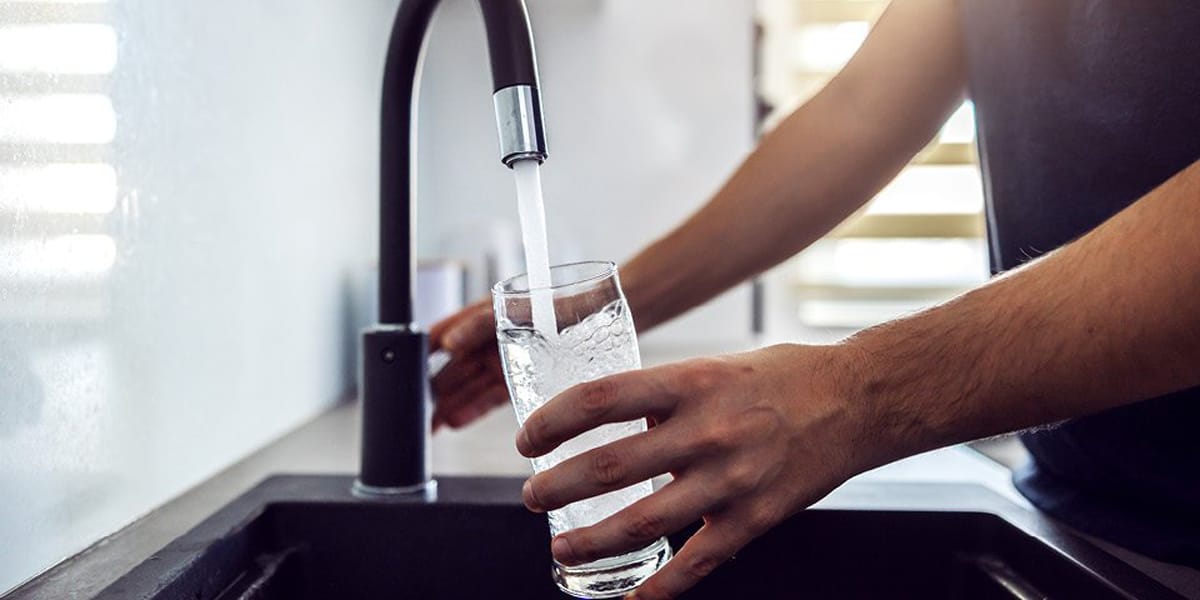Why Do Minerals Make Water Taste Better?

We all have unique tastes, but most of us would agree that bottled water just tastes better than tap water. There’s a good reason for this—so you’re not picky if you prefer refreshing Primo water over a glass from the kitchen sink. Water has a subtle flavor that can sometimes stand out in both taste and smell, while at times can be almost undetectable (unless you’re one of the world’s few water sommeliers, of course). But every glass of water does have a flavor and that’s due to its mineral content.
Why are Minerals in Water?
Water picks up minerals, and thus its unique flavors, during its journey from its source to your home. Depending on where it comes from, your next glass of water might contain dissolved minerals that came from distant mountain springs, a deep natural well or nearby rivers and lakes. Tap water also picks up minerals from pipes, both your home’s pipes and the city’s, which is why tap water in San Francisco tastes different than tap water in New York City, and your tap water might even taste different than your neighbor’s.
If you’re drinking bottled water, then you’re likely tasting a blend of minerals that were intentionally added for flavor quality. At Primo, for instance, our pre-filled exchange water goes through a multi-step filtration and reverse osmosis process that ensures no dirt, sediment, rust, mercury, chlorine or other undesirable contaminants makes it into the bottle. The process is so thorough that it also removes the minerals that are good for taste and our health. This end result is distilled water, which is great for your clothing iron, but not great for drinking. Distilled water has no flavor, so most people find it tastes bland, has a dry mouthfeel and isn’t thirst-quenching like it should be.
The solution is to add beneficial minerals after the fact. This is step seven in Primo’s pre-filled exchange water purification process. Primo has a special blend and proportion of minerals that make our water taste just so. The specifics are a trade secret, of course, but we like to think Primo has crafted the perfect mineral ratio for smooth, great-tasting water.
Which Minerals are in Water and What Do They Taste Like?
There are a number of healthy minerals that could be in drinking water, but only a handful are likely to noticeably affect your water’s taste: calcium, magnesium, sodium and bicarbonate.
Calcium is the most abundant mineral in the body and is essential for bone health. It’s naturally found in most spring and well water, as well as many other water sources. It affects both the flavor and mouthfeel of water, making it taste smooth and almost milky.
Magnesium helps the body with nerve and muscle function, blood pressure regulation and immune system support. Like calcium, it’s found in most water sources, but it has a very different flavor profile. Too much magnesium in water can make it taste bitter or medicinal, but the right amount can make water taste more refreshing.
Sodium or salt in water might sound odd— after all, doesn’t salt make us thirstier? In high quantities, yes, but the small amount of sodium added to water actually helps improve our fluid balance, keeping us hydrated and feeling good longer. Sodium in water is typically unnoticeable, working to round out the other flavors rather than making the water taste salty. Your drinking water should never taste like the ocean!
Bicarbonate is often found in water that comes from limestone-rich wells. It’s only one part of a mineral that breaks down in water, so you might see it in ingredients listed as “potassium bicarbonate” or “sodium bicarbonate.” The body’s metabolism naturally produces bicarbonate, and it plays a role in balancing pH. When in water, it creates a clean, fresh taste that can sometimes be described fittingly as “minerally.”
Taken together in small amounts, these four minerals make for better-tasting water that better quenches your thirst, which is why they’re so commonly added to bottled waters. Tap water, on the other hand, may have these minerals as well, but other minerals, chemicals and contaminants such as iron, chlorine and fluoride may negatively affect its overall flavor. If your tap water tastes metallic, sour or overly bitter, it can still be safe to drink, but we wouldn’t blame you if you’d rather get a fresh glass from your Primo water dispenser instead!
When you want water that you can trust always tastes great, find a Primo water exchange or refill location near you. Or sign up to have water delivered right to your door on your schedule!
